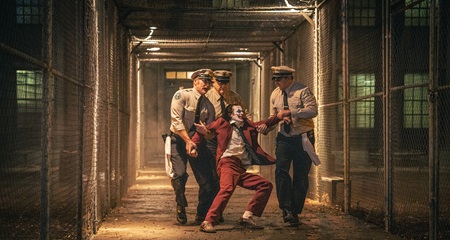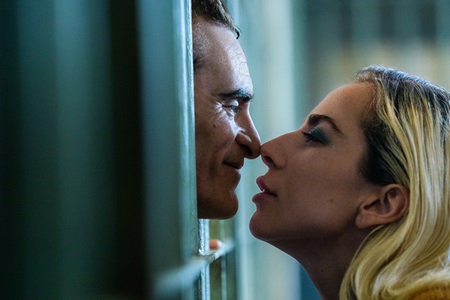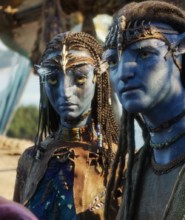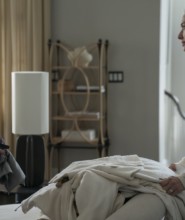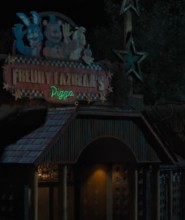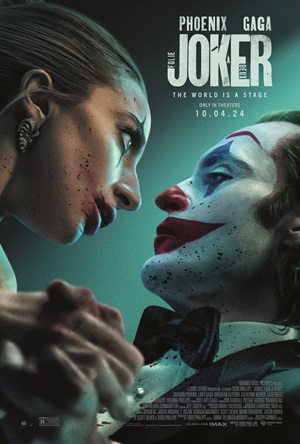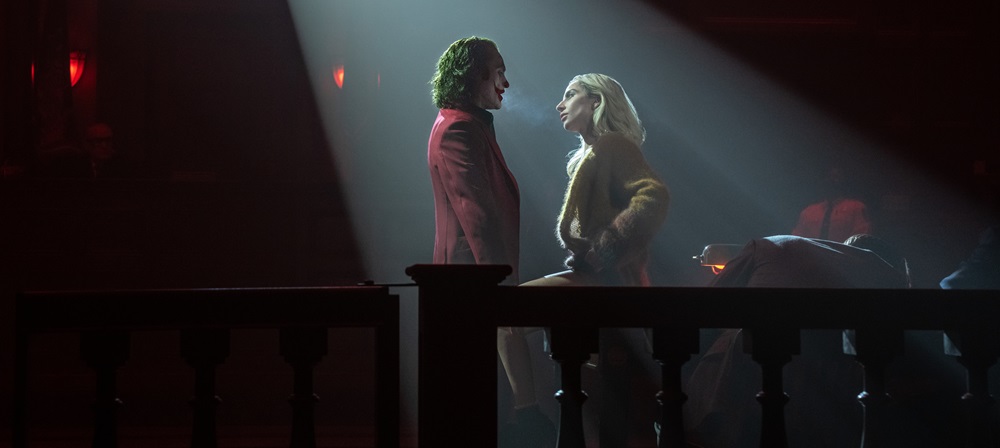
Musical Joker Sequel Sings an Ambitious Song of Selfishness and Accountability
It’s no secret I was no fan of 2019’s box office smash and Academy Award-winning Joker, directed and co-written by Todd Phillips. I found it to be a ham-fisted pastiche of bad ideas, didactic storytelling, and a pale, surface-level imitation of the hard-boiled 1970s and ‘80s “angry man” dramas (most notably Martin Scorsese’s Taxi Driver and The King of Comedy) it was clearly inspired by. While the technical facets were impressive, the film still frustrated and annoyed me. I don’t like it. At all.
I won’t say I’ve changed my tune entirely with Joker: Folie à Deux. I found it to be almost unbearably long at 138 minutes, its messaging muddled, and the inclusion of several musical numbers more intriguing in concept than they sadly were in execution. But Phillps and returning co-writer Scott Silver refuse to play it safe. They have a fair share of heady ideas they’re aiming to explore, and I appreciate how big their swings are with this second installment in the life and times of Arthur “Joker” Fleck (Joaquin Phoenix).
What’s most notable is how hard Phillips and Silver go after the type of toxic masculinity and white male privilege it could be read that they went out of their way to celebrate so feverishly in the previous film. What transpires here is the “find out” portion of all of Fleck’s “f-ing around” after he became a big-time celebrity for murdering five people, including one on live television in front of a captivated live audience. I like that they do that.
In a roundabout way, the filmmakers put their antihero on a road where he may finally be willing to take accountability for his actions. More importantly, they show how this sort of violently selfish entitlement is self-perpetuating and how it throws those it once celebrated cruelly under the bus when they turn against the wants and desires of a noxious cult of imbeciles. They’re the butt of the joke, and it is almost as if Phillips and Scott are giving that part of their fandom the middle finger and giggling all the way to the bank as they do it.
I’m happy to celebrate all of that. As a continuous story, this second chapter in Fleck’s journey makes me suddenly look at the first half in a new light. It brings additional context to what previously transpired, adding emotional weight I didn’t think was originally there.
The issue is that Phillips’s storytelling is as blunt and as wooden as ever. His ideas may be interesting, but the dramatic execution is off. Scenes don’t connect. Characters exist in entirely different worlds. Phillips wouldn’t know how to convey an authentic human emotion if one snuck up and tapped him on the shoulder. Heck, he wouldn’t know how to make melodramatic soap opera pabulum cinematic instead of sloppy schlock even if Douglas Sirk rose from the grave and handed him a step-by-step handbook on how to do it, so that aspect doesn’t work so well, either.
Then there are the musical sequences. References to classics like The Band Wagon and The Umbrellas of Cherbourg only made me want to rewatch The Band Wagon and The Umbrellas of Cherbourg. These Busby Berkeley/Stanley Donen/ Vincente Minnelli-inspired flights of fancy are technically intriguing and nothing more. They’re inorganically shoehorned into the proceedings, and instead of achieving a Pennies from Heaven type of elegiac majesty that adds additional thematic resonance to the ongoing story, they instead land with a resounding thud that reverberates throughout the entire theater.
I do wonder what someone like Greta Gerwig could have made with this screenplay. After what she accomplished with Barbie, which pulled from many of the same reference points that this does, it’s easy to imagine that she could have done something marvelous with Phillips and Silver’s ideas. It’s also interesting that Vera Drew’s The People Joker covered many of the same themes this sequel ponders and does so with far more ingenuity and imagination (so much so Warner Bros. ironically might want to offer her a residual check so they don’t get sued for plagiarism). Just stuff I pondered as I walked home after the promo screening.
The sequel picks things up with Fleck incarcerated in Arkham awaiting trial for his murder spree from two years prior. He ends up in a music therapy group with Lee Quinzel (Lady Gaga, whose character is strangely underdeveloped and underutilized), a big fan of the Joker who is determined to get to know him even better. Through their interactions, Fleck retreats into a musical dreamworld that opens his eyes to new pleasures that rock his world. They also force him to reevaluate the actions that put him in prison (and possibly on death row), and looking in the mirror this clown prince of mayhem suddenly isn’t so sure he likes what he sees.
Oscar-nominated cinematographer Lawrence Sher returns and shoots the heck out of things and, if anything, his work this time is even more impressive than it was on Joker. He makes phenomenal use of the exquisitely constructed sets crafted by production designer Mark Friedberg, especially the more otherworldly ones Fleck dreams up when his mind traipses into its subconscious. Sher’s use of color, light, and shadow is particularly outstanding.
As for Phoenix, I think he’s better in this than he was in the previous picture. Granted, a Best Actor Academy Award notwithstanding, I didn’t like him in Joker. I felt he was giving a lot of performance, not a good one. Here, however, Phoenix showcases levels of depth and nuance that caught me by surprise. There’s an understatement to his work that’s frequently marvelous, and a scene in the courtroom between him and Leigh Gill is one of the best single moments I’ve seen in any movie this year.
I still don’t think Joker: Folie à Deux works. But because of its ambition, and in large part because it gave me something I felt was worth the time and effort to think about after I left the theater, I’m willing to give Phillips and his creative team props for shaking things up. The jokes may still fall flat, but that doesn’t mean the punchline does not land. It does, and unlike the the first film, I may revisit this sequel sooner rather than later.
Film Rating: 2½ (out of 4)


